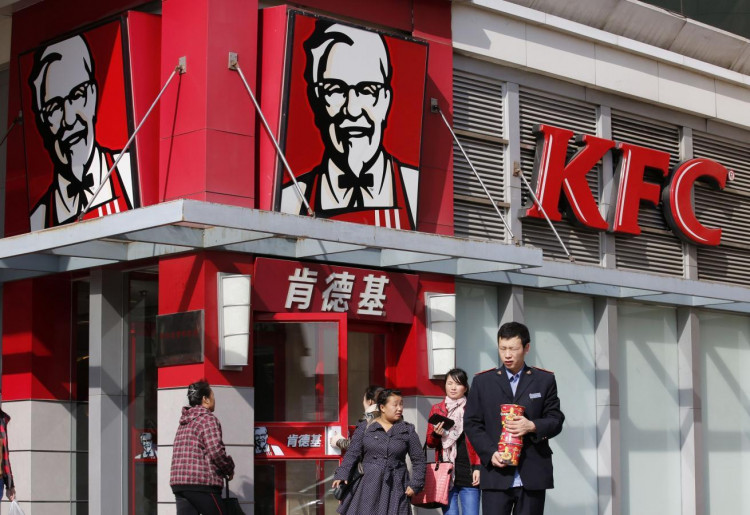Yum China Holdings Inc., the operator of KFC, Taco Bell, and Pizza Hut franchises in mainland China, is set to raise up to HK$17.3 billion ($2.2 billion) through a secondary listing in Hong Kong. On Friday, the company said it would price its new shares at HK$412 each.
The pricing for the 41.9 million shares is a 4.9 percent discount to its shares in New York. Yum China's stock price in New York closed at $53.82 each Friday.
The discount is one of the broadest for a secondary listing in Hong Kong. NetEase priced its secondary shares in the city in June at a 2 percent discount compared with its U.S. closing price. JD.com priced its secondary listing at a 3.9 percent discount.
The American Fortune 500 fast-food restaurant company incorporated in the U.S. and headquartered in Shanghai said the deal's underwriters had been given an overallotment option to purchase an additional 6.3 million shares at the offer price. If the overallotment option is utilized the IPO might raise as much as HK$19.9 billion.
Around 40.2 million shares will be offered to international investors while 1.7 million shares will be offered to local retail investors. Yum China's shares in Hong Kong will begin trading Sept. 10. The company will trade under the ticker 9987.
Once completed, the transaction will be the third-largest fundraising on the Hong Kong Stock Exchange this year behind JD.com and NetEase's "homecoming" listings. Yum China will overtake China Bohai Bank's $1.78 billion IPO - the bourse's largest debut this year - for third spot.
Yum China said it would use the proceeds of the secondary listing to expand its restaurant network and accelerate digitalization. Some of the cash will be spent improving its supply chain - which had been disrupted by the virus pandemic. The company currently operates about 10,000 outlets in 1,400 China cities and towns.
Yum China experienced big falls in sales during the first quarter as a result of the pandemic. The company was forced to close more than a third of its restaurants in February because of government lockdowns. For its first quarter the company reported a profit of $62 million - its worst quarterly result since 2017.





